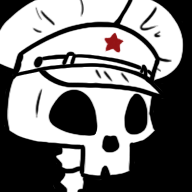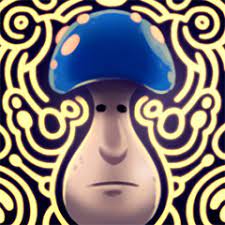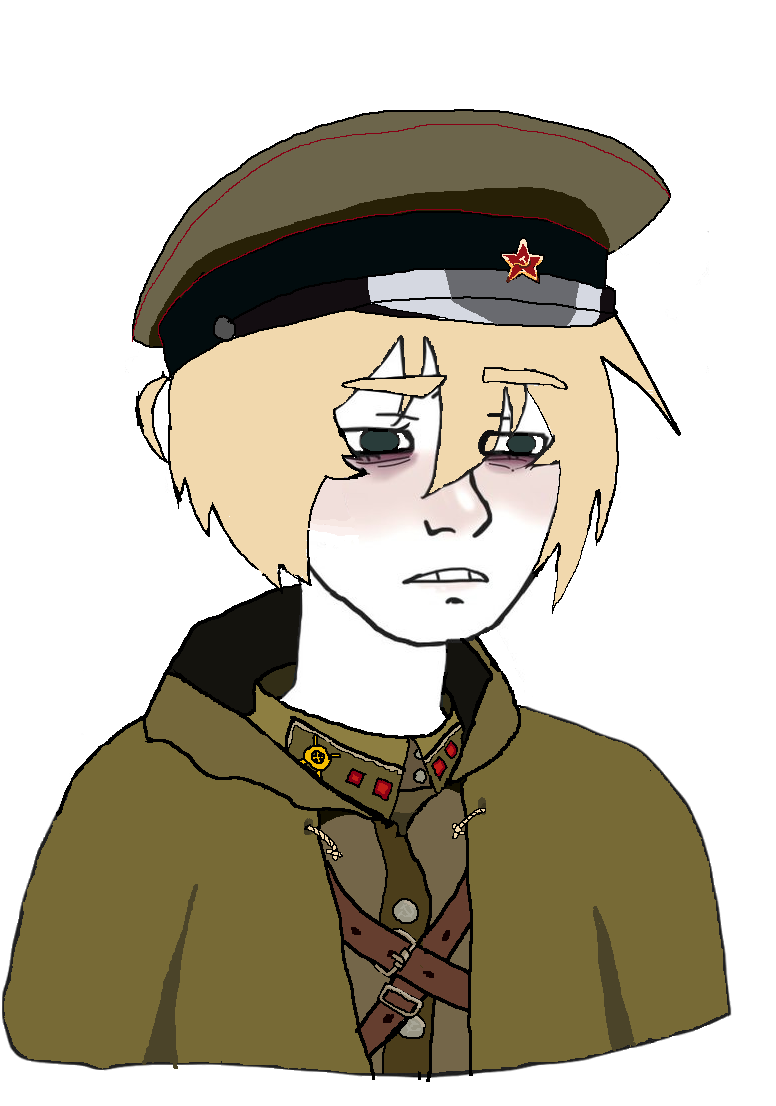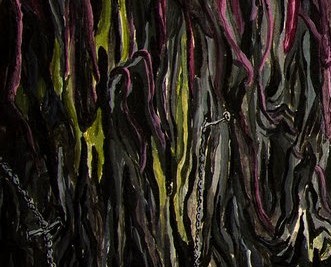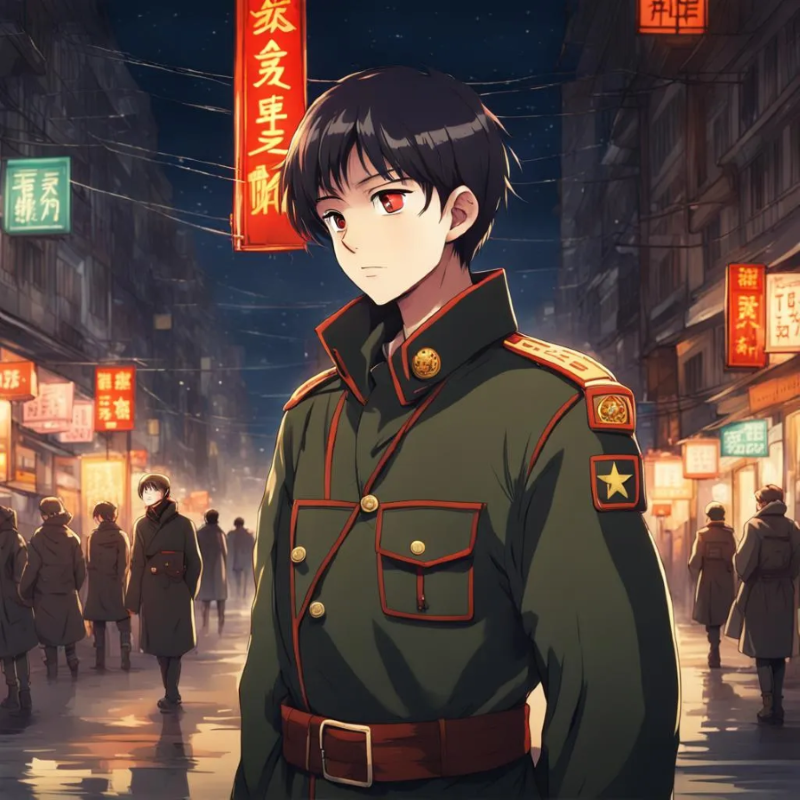Permanently Deleted
I finished "How to Be a Good Communist" by Liu Shaoqi recently. Rly rly great book, can't recommend it enough. I'm digging the message of always thinking about what is best for the party and the revolution first and foremost. He also explained that waging discussions with comrades from a place of compassion, by correcting false notions and helping eachother in furthering your understanding of Marxism, is really important for keeping out revisionists, etc. Lots more was discussed.
And now I'm reading "Blackshirts and Reds: Rational Fascism and Overthrow of Communism" and I have to say, it's so refreshing to finally read literature again you can comprehend without rereading sentences every few seconds, ngl.
I am currently powering through all the "Stalin ordered, stalin dictated, stalin commanded" of Jakarta Method.
Ive been reading straight up non-fiction for years now so if anyone has a good fiction recommendations, im all ears.
Its a good read, but as i mentioned you have to power through a lot of "stalin this, stalin that".
A great fiction book everyone should read is ‘parable of the sower.’ It’s a dystopian novel taking place in realistic near future US. It’s themes are very dialectical. You gotta read its sequel too. I recently reread the first and read the second.
Edible and medicinal plants of Canada. I want to level up my bushcrafting and foraging skills. Going to be cross referencing with medical studies. Taking a break from theory.
I just finished ‘How 2 take an exam and change the world,’ which was a good baby leftist text if you get past the fact that Bertell Ollman an orthodox (?) Marxist and thinks “of course AES turned out bad, they tried to do socialism without doing capitalism first.” I gave it to a baby leftist friend, who I think will like it. I also finished ‘Revolt of the Angels’ which was pretty good if you can get past the French. The ending was surprising and I will not spoil it here in case anyone takes my positive endorsement (Ty @SovereignState@lemmygrad.ml for the recommendation).
I’m currently reading ‘Socialism with chinese characteristics: a guide for foreigners.’ It’s good. I’m glad I learned about dialectics first. I was happy when I read the part Hakim talked about on the deprogram recently before he did. I just started ‘Half Earth Socialism,’ which I’m really exited about. I heard the Bolsheviks or some other old party had a sort of common language through the utopian novel they read rather than Capital as we might think. I think ‘Half Earth Socialism’ should be that book for current organizations. I recommend everyone play https://www.half.earth/ the connected free online game. It’s good propaganda.
Im going to start reading ‘things fall apart,’ and maybe ‘the lion the witch and the wardrobe’ (Spanish version) soon.
To answer the second question I recently got a few books and would like to start them.
I just recently finished Caliban and the Witch and found it very good! It's an amazing account of the emergence of capitalism with a lot of further recommended reading in the notes. It really breaks down what primitive accumulation and the enclosures entailed, and it made me aware of pre-socialist liberation movements, both during feudalism and capitalism, and both in Europe and in its colonies. Throughout all this it also describes the social position of women and the construction of the modern patriarchy. I definitely highly recommend it.
Fiction: In the Name of the People by Zhou Meisen. It's a really fun political thriller detailing the case of a corrupt cadre in a Chinese city. It was made into a TV/streaming series in the last two years and was apparently very popular in China.
Non-fiction: American Exception by Aaron Good. It's surprisingly readable for what is essentially a PhD thesis, and very interesting both in terms of history and what it means for the present and future.
I don't have any books that I'm necessarily hesitant to start, I just have such a long reading list it's hard to prioritize.
Just started reading Assata. I'm only on chapter 2, but it's a really good read so far.
I just read Parenti's Profit Pathology and other Indecencies, it had been sitting on my shelf for a while and I hadn't gotten around to it. It's very good.
I don't read much fiction anymore these days, at least not in book form. I do listen to a couple audiobook/audioddrama style podcasts during commutes though. I prefer not to listen to non-fiction audiobooks, I tend to phase out too much and miss things.
Finished Bitter Fruit a few days ago, and now about half way through Ten Days that Shook the World
Also reading the Animorphs series while trying to catch up to @Dirt_Owl@hexbear.net's daily posts
Probably going to start the Vincent Bevins book that came out today sometime soon
I've been jumping around between a bunch of books because ADHD is a vibe, but here's the list:
Bullshit Jobs
Pretty cool book but way less data dense than I expected. Graeber has some random anarchist moments in there but it doesn't negatively impact the thesis.
Move Fast and Break Things, Taplin
Documents the rise of the big techs (specially Amazon, Google, Meta and PayPal) through a critical lense, from the active recruitment of people who actively disregard the law (Napster) to intentionally targeting markets that are easy to consolidate while using every resource on earth to avoid even paying basic taxes their competitors had to deal with. For example, Amazon had a lot of success specifically because during its formative years it had to pay zero sales taxes due to loopholes about selling out of state.
Author really likes copyright, and really hates piracy.
Chokepoint Capitalism, Doctorow
Haven't got too far into this one but so far it's really good at documenting the active and intentional anti-competitive practices and smoke and mirrors, specially of Google, and demystifying some self-important myths of theirs. Worthy of note is how they show how, in many cases, Google's ad business has basically no effect on new costumers, and how it's built on a mountain of fraud.
Author really could use a read of Imperialism.
Vidas Secas, Grasciliano Ramos
Fictional story about a small poor family living in the Sertão region of Brazil in the 1930s through the long dry seasons. It's incredibly melancholic and introspective, and the author has a very good way with words. Since it uses a lot of the local dialect, even most Brazilians would probably have a hard time reading it, so I doubt a translation would do it justice.
It was partially written while the author was in jail after a failed communist revolution against the fascistic government.
Las Venas Abiertas de América Latina, Eduardo Galeano
I'm actually re-reading (listening) in Spanish this time.
It is a broad socio-economic history review of Latin America, beginning from the colonisation by Spain and Portugal, and following it through to the insertion of British and then Estadunidense capital. It goes into a lot of depth about the extractive economies, from minerals to sugar, oil, cotton or wood, and the impacts of colonisation and imperialism on both the original people, the settlers and the enslaved Africans and their descendants.
It is a must read if you want to understand Latin America through a Marxist perspective, and also makes for great Spanish practice while you're at it. The audiobook on the audiobookbay is pretty good too.
I was also reading Assassination of Julius Caesar by Parenti, which is very good, but decided to put that one on hold until I get the other ones (and my life) under control.
The Scar by China Mieville. The second time, i love it
"The Age of Awakening" (unsure if it's the real translated title, fiction), Chinese. I watched the TV show a few years back when it came out and I'm reading the book now.
